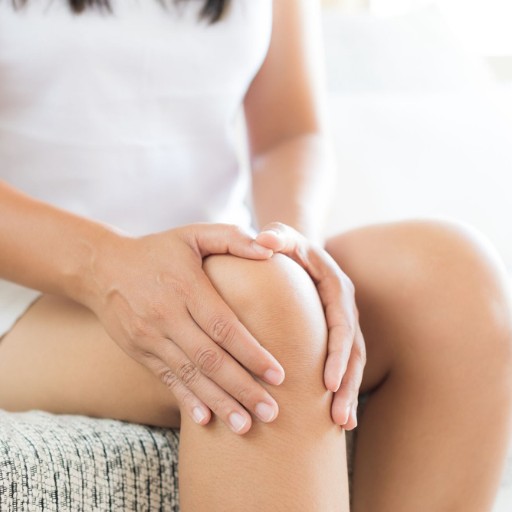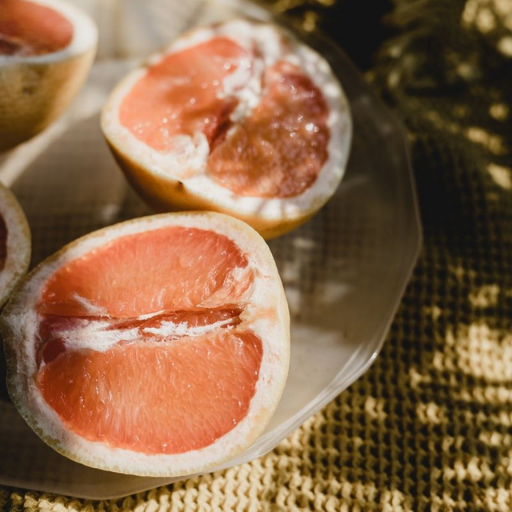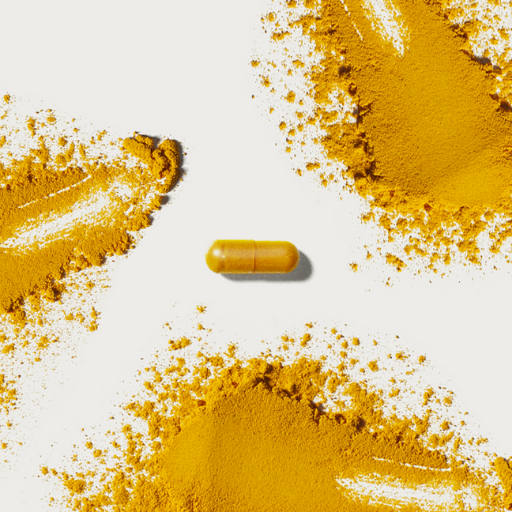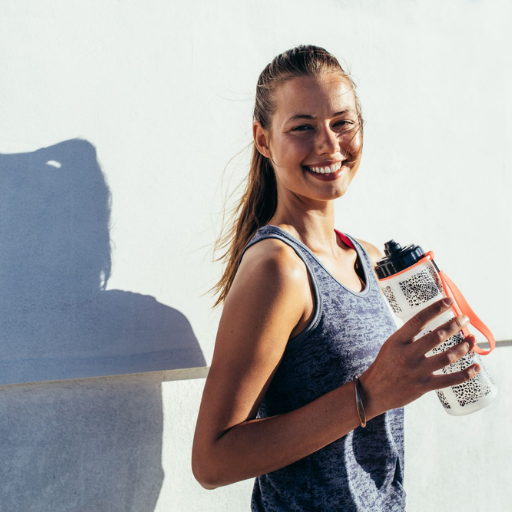7 tips to avoid knee joint pain for runners
7 tips to avoid knee joint pain for runners
Are you an avid runner but are constantly unable to reach your goals due to knee pain? Chronic knee joint pain is the long term-pain, swelling or sensitivity of the knees. It can occur suddenly or develop over a period of time. It can happen to people of all ages.
Approximately 1 in 4 adults experiences knee pain at some point in their life (1). It is important to identify the underlying cause of knee pain to help guide treatment. So, here are seven tips to avoid knee joint paint for runners.

What is knee pain?
Knee pain is a common issue that may originate in any of the structures that comprise the knee (2). This may include the knee joint: the femur, tibia or fibula, the patella (kneecap), meniscus (cartilage) or ligaments and tendons. There is a wide range of causes for knee joint pain, which can often be aggravated by exercise, having a high body weight and injuries.
What causes knee joint pain?
Knee joint pain may arise due to several reasons. The first is due to knee injuries. Common knee injuries that can occur include:
- Broken or fractured bones
- Ligament tear
- Meniscal tear
- Dislocation
The other reason that you might experience knee joint pain is because of illness or medical conditions. These include:
- Osteoarthritis
- Rheumatoid arthritis (RA)
- Gout
Finally, another reason for knee joint pain is chronic conditions. These might include the following:
- Osteoarthritis of the knee
- Bursitis
- Patellofemoral pain syndrome
- Referred pain: pain that originally starts at the hip or lower spine and is referred to other areas of the body
Who is most at risk for knee pain?
There are certain individuals that may be more at risk of knee pain than others. We've included a few in the list below. However, if you experience knee joint pain, it's important to chat with your doctor. People are risk of knee pain include:
- Overweight or obese individuals (4,5)
- Individuals with a previous knee injury (3)
- Physically demanding work or frequently lifting a heavy load (6)
- Age and gender: the prevalence of knee pain is often higher for women and for those of older age (7,8)

What are the symptoms of knee pain?
You might experience the following symptoms of knee pain:
- Not being able to straighten your knee
- Clicking sounds
- Locking of the knee
- Bruising
- Inflammation, redness and swelling
- The feeling of heat inside the knee
- The knee giving way or feeling unstable
It is important to speak with your healthcare professional if you don’t experience any pain relief after a few days or if the pain doesn’t respond to rest.
How is it diagnosed?
A trained healthcare professional will discuss your pain and conduct an examination on your knee. They may consider diagnostic tests including:
- Blood tests
- X-rays, ultrasound or MRI scan
- Arthrocentesis – the removal of joint fluid from the knee using a needle (if needed)
How can runners prevent knee joint pain?
There are a number of factors that can cause knee pain. Therefore, it is important to address the underlying cause.
Consider your running surface
Some anecdotal evidence has suggested that running on hard surfaces may promote knee pain. However, this theory has not yet been tested in research and there are arguments both for and against it. There are currently no clear-cut recommendations on what surface is best to run on. It may be beneficial to try something different and see if it works for you. If you do experience knee pain try running on soft surfaces like grass.
Exercise in moderation
Exercise helps to strengthen the muscles that support your knee and increase flexibility. However, too much running can cause pain due to overuse. Aim to engage in exercise most days, but also give your body enough time to rest and recover. You could also try alternating your exercise and include other forms of exercise including restorative yoga or swimming.
Maintain a healthy weight
Having a high body weight can place a lot of strain and pressure on the knee joint. Managing your weight can be helpful for many different forms of arthritis and knee joint pain. Focus on achieving a healthy body weight by eating a balanced diet, exercising regularly and limiting sedentary activity and discretionary foods can be beneficial.
Add Vitamin C
Vitamin C is a powerful antioxidant found in oranges, lemons, strawberries and broccoli. Studies have indicated that a high intake of vitamin C is associated with a reduced risk of developing inflammatory polyarthritis including rheumatoid arthritis (9). Ensure you include vitamin C rich fruits and vegetables in your diet, daily.

Strengthen your bones
Maintaining healthy and strong bones is important for runners. A key nutrient to make sure your bones stay strong is calcium. This nutrient is essential in preventing brittle bones but also healing bones after they break. Meet your calcium needs each day by eating dairy products, dark leafy greens, calcium-fortified plant milk, or supplementing with Vitable Calcium Plus.
Use “RICE”
Make sure to use “RICE” – rest, ice, compression and elevation in the case of a flare or minor injury. Give your knees time to rest, place an ice pack around the area of pain to reduce swelling, wear a compression garment or bandage and keep your knee elevated.
Wear the right shoes
Wearing poorly designed shoes can make the pain worse and increase the risk of developing pain. For knee osteoarthritis, it is recommended to wear special insoles or orthotics to cushion your foot. To find the appropriate insole for you, speak to your doctor or podiatrist.
Include turmeric
Curcumin is one of the active constituents in turmeric. It is a powerful antioxidant and gives turmeric its bright yellow colour. However, curcumin is often only found in 3-5% of turmeric by weight, therefore to experience the full benefits that curcumin provides, it may be more beneficial to take curcumin as a therapeutic dose in a supplement form.
Curcumin has strong anti-inflammatory and antioxidant properties. Studies have shown that curcumin may help to improve arthritis symptoms, with some research finding that the supplement may be just as effective as anti-inflammatory drugs (10,11). Curcumin acts as a master switch of inflammation literally blocking the inflammatory response pathways in the body and offering a protective effect.

Knee pain treatment options
If you experience chronic knee pain, there are a number of natural remedies and treatment options available.
- Glucosamine and Chondroitin: Glucosamine and chondroitin supplements may be beneficial in reducing pain inflammation in people who experience knee pain (12,13).
- Omega-3 supplementation: Studies indicate that omega-3 fish oil supplements can help reduce joint tenderness and stiffness (14).
- Medications: Analgesics are most commonly used in the pain management of arthritis as they are targeted to reduce joint pain. Nonsteroidal anti-inflammatories may also be used to help reduce both pain and inflammation (15).
- Support: Strapping or bracing can be used to help support the knee, keep it stable and prevent it from moving around.
- Physical therapy: A trained physiotherapist can help design an exercise program to improve the range of motion and strengthen the muscles around the knee. It is also important to reduce the risk of injury and recovery after surgery.
- Surgery: Chronic pain and inflammation can be extremely debilitating, make sure you speak to your health care professional. If needed surgery is used for people who need total or partial knee replacements.
The bottom line
There are numerous reasons why joint pain exists. If you’re a runner, it is important to identify why you may be experiencing knee joint pain. This will help to determine an effective treatment strategy and get you back on track to achieving your goals!
If you are in a high-risk group, it may be beneficial to ensure you are of healthy body weight, exercising regularly and meeting your nutrient needs through food and supplements to prevent future knee pain. A supplement may assist in supporting the body to manage pain and inflammation.
Take the Vitable quiz today to understand your options.

Find out more about other areas that the above supplements can help you with:
Vitamin C | Calcium Plus | Fish Oil | Curcumin
*Always read the label. Follow the directions for use. If symptoms persist, talk to your health professional. Vitamin and/or mineral supplements should not replace a balanced diet.
References
- Nguyen, U., Zhang, Y., Zhu, Y., Niu, J., Zhang, B. and Felson, D. (2011). Increasing Prevalence of Knee Pain and Symptomatic Knee Osteoarthritis: Survey and Cohort Data. Annals of Internal Medicine, 155(11), p.725.
- Ortho Info. (2019). Common Knee Injuries - OrthoInfo - AAOS. Published on: https://orthoinfo.aaos.org/en/diseases--conditions/common-knee-injuries/
- Miranda, H., Viikari-Juntura, E., Martikainen, R. and Riihimäki, H. (2002). A prospective study on knee pain and its risk factors. Osteoarthritis and Cartilage, 10(8), pp.623-630.
- Anderson, J and Felson, D. (1988). Factors Associated with Osteoarthritis of the Knee in First National Health and Nutrition Examination Survery (HANES I). American Journal of Epidemiology, 128(1), pp.179-189.
- Oliveria, S., Felson, D., Cirillo, P., Reed, J. and Walker, A. (1999). Body Weight, Body Mass Index, and Incident Symptomatic Osteoarthritis of the Hand, Hip, and Knee. Epidemiology, 10(2), pp.161-166.
- O'Reilly, S., Muir, K. and Doherty, M. (2000). Occupation and knee pain: a community study. Osteoarthritis and Cartilage, 8(2), pp.78-81.
- Felson, D., Zhang, Y., Hannan, M., Naimark, A., Weissman, B., Aliabadi, P. and Levy, D. (1997). Risk factors for incident radiographic knee osteoarthritis in the elderly. The framingham study. Arthritis & Rheumatism, 40(4), pp.728-733.
- Andersen, R., Crespo, C., Ling, S., Bathon, J. and Bartlett, S. (1999). Prevalence of Significant Knee Pain Among Older Americans: Results From the Third National Health and Nutrition Examination Survey. Journal of the American Geriatrics Society, 47(12), pp.1435-1438.
- Pattison, D. (2004). Vitamin C and the risk of developing inflammatory polyarthritis: prospective nested case-control study. Annals of the Rheumatic Diseases, 63(7), pp.843-847.
- Chandran, B. and Goel, A. (2012). A Randomized, Pilot Study to Assess the Efficacy and Safety of Curcumin in Patients with Active Rheumatoid Arthritis. Phytotherapy Research, 26(11), pp.1719-1725.
- Belcaro, G., Cesarone, M., Dugall, M., Pellegrini, L., Ledda, A., Grossi, M., Togini, S. and Appendino, G. (2010). Product-evaluation registry of Meriva®, a curcumin-phosphatidylcholine complex, for the complementary management of osteoarthritis. Panminerva Me, 52(2 suppl 1), pp.55-52.
- Braham, R. (2003). The effect of glucosamine supplementation on people experiencing regular knee pain * Commentary. British Journal of Sports Medicine, 37(1), pp.45-49.
- Kantor, E., Lampe, J., Navarro, S., Song, X., Milne, G. and White, E. (2014). Associations Between Glucosamine and Chondroitin Supplement Use and Biomarkers of Systemic Inflammation. The Journal of Alternative and Complementary Medicine, 20(6), pp.479-485.
- Arthritis Foundation. (2019). Fish Oil Supplements for Arthritis. Published on: https://www.arthritis.org/living-with-arthritis/treatments/natural/supplements-herbs/guide/fish-oil.php
- Arthritis Foundation. (2019). Knee Pain Treatment | Knee Pain Relief | Knee Pain Remedies. Published on: https://www.arthritis.org/about-arthritis/where-it-hurts/knee-pain/treatment/knee-pain-treatment.php